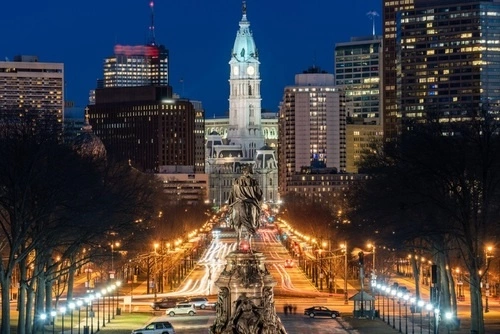
The full House will consider the FY21 Transportation, Housing and Urban Development (THUD) bill that the House Appropriations Committee approved with a final vote of 30-22 on July 14, 2020. For FY2021, the THUD bill provides a total of $107.2 billion in total budgetary resources for the U.S. Department of Transportation, including:
- $1 billion for National Infrastructure Investments (TIGER/BUILD);
- $3 million to support the Highly Automated Systems Safety Center for Excellence;
- $10 million for competitive Transportation Planning Grants to assist areas of persistent poverty;
- $18.1 billion for the FAA, including $1.5 billion for Aviation Safety and $500 million for discretionary Airport Improvement Grants;
- $62.9 billion for FHWA, including $61.9 billion, consistent with the INVEST in America Act, for programs funded from the Highway Trust Fund, and $1 billion for discretionary Highway Infrastructure Programs, a decrease of $1.2 billion below the FY 2020 enacted level, but $1 billion above the President’s budget request;
- $881 million for the Federal Motor Carrier Safety Administration;
- $3 billion for the FRA, including $500 million for Consolidated Rail Infrastructure and Safety Improvements, $200 million for Federal-State Partnership for State of Good Repair, $2.05 for Amtrak, consisting of $750 million for Northeastern Corridor Grants, and $1.3 billion for National Network Grants;
- $18.9 billion for FTA, including $15.9 billion for Transit Formula Grants consistent with the INVEST in America Act, $2.2 billion for Capital Investment Grants, and $510 million for Transit Infrastructure Grants;
- $40 million for Saint Lawrence Seaway Development Corporation; and
- $1.2 billion for Maritime Administration, including $314 million for Maritime Security Program, $300 million for Port Infrastructure Development Program, and $389 for schoolship construction.
The legislation also provides $26 billion of emergency funding to support economic recovery from the coronavirus pandemic by investing in transportation infrastructure, including:
- $3 billion for National Infrastructure Investments (TIGER/BUILD);
- $10.5 million for DOT Cyber Security Initiatives;
- $500 million for FAA Facilities and Equipment;
- $2.5 billion for FAA Grants-in-Aid for Airports;
- $5 billion for Consolidated Rail Infrastructure and Safety Improvements;
- $100 million for Magnetic Levitation Technology Deployment Program;
- $5 billion for Northeast Corridor Grants to Amtrak;
- $3 billion for National Network Grants to Amtrak;
- $5 billion for the Capital Investment Grants;
- $125 million for Maritime Administration Operations and Training;
- $345.5 million for State Maritime Academy Operations;
- $100 million for Assistance to Small Shipyards;
- $1 billion for Port Infrastructure Development Program; and
- $7.5 million for the DOT Office of Inspector General.
Additionally, the bill adopted by the full Committee includes amendments requiring the use of masks and enhanced sanitation measures on airlines, Amtrak, and in large transit agencies.
The same day the THUD bill passed out of committee, the American Public Transit Association (APTA) sent a letter to congressional leadership requesting $32-36 billion in additional transit funding. Estimates of the pandemic’s devastating financial impact on transit include: $700-800 million/month loss by New York MTA, $1.8 billion loss over two years for Los Angeles County MTA, $500-$800 million loss through 2023 for Southeastern Pennsylvania Transportation Authority, $100-150 million deficit in 2021 for Regional Transportation District of Denver, and $975 million deficit over a three year period for Bay Area Rapid Transit.
Nossaman’s 30-plus infrastructure attorneys offer clients, colleagues, strategic partners and industry media a wealth of practical experience, insider insight and thoughtful analysis here on Infra Insight. We blog about what we know best, from industry-leading procurements to local and national policy developments that affect the market and our clients.
Stay Connected
 RSS Feed
RSS Feed
Categories
- Airports
- Alternative Project Delivery
- Bridges
- California Environmental Quality Act
- Cybersecurity
- Design-Build
- Financing
- High-Speed Rail
- Job Opening
- Legislation
- News
- P3s
- Policy
- Ports
- Rail and Transit
- Social Infrastructure
- Tollroads/ Turnpikes/ Managed Lanes
- Transportation Infrastructure
- Tunnels
- Water
